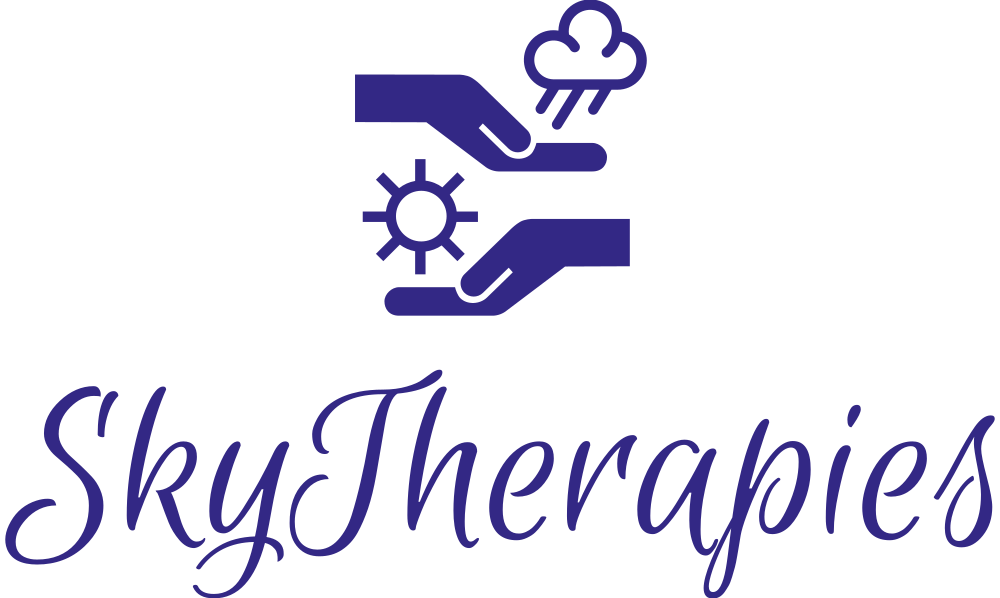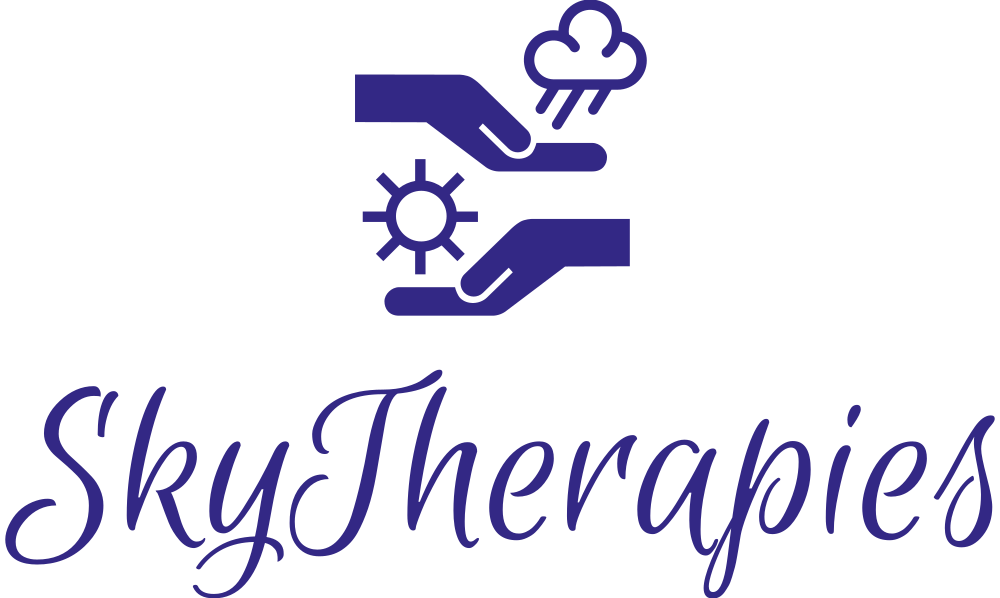Anxiety is an emotion we all experience from time to time. Whether it’s a fleeting moment before a big presentation or a nagging sense of unease that lingers throughout the day, anxiety can be uncomfortable and overwhelming. But for many people, anxiety can evolve into something more chronic and pervasive, affecting their daily lives and overall well-being. At Sky Therapies, we understand the complex nature of anxiety, and we are dedicated to helping individuals navigate their way through it with compassion, support, and scientifically backed therapeutic techniques like EMDR and DBR.
In this blog post, we’ll explore the causes of anxiety, its impact on mental and physical health, and how therapy can provide the tools needed to manage and reduce anxiety symptoms. We’ll also dive into how therapies like Eye Movement Desensitization and Reprocessing (EMDR) and Deep Brain Reorienting (DBR) are proving to be incredibly effective in helping individuals manage anxiety and find lasting relief.
What is Anxiety?
Anxiety is a natural response to stress. It’s your body’s way of preparing for a perceived threat or challenge. In small doses, anxiety can be helpful—it sharpens focus and alerts us to dangers. However, when anxiety becomes chronic or overwhelming, it can interfere with daily life and lead to a variety of physical and emotional challenges.
Common anxiety symptoms include:
- Constant worry: An ongoing sense of dread, often without clear cause.
- Physical symptoms: Increased heart rate, sweating, dizziness, headaches, and muscle tension.
- Difficulty concentrating: Trouble focusing on tasks or feeling “on edge.”
- Sleep disturbances: Insomnia or restless nights due to racing thoughts.
- Avoidance behaviors: Steering clear of situations that provoke anxiety, which can limit daily functioning.
While anxiety is often triggered by specific events or situations, it can also develop gradually or without any clear external cause. Long-term anxiety can be disabling and may contribute to other mental health conditions such as depression or panic disorders.
Causes of Anxiety
Understanding the root causes of anxiety is key to finding effective ways to manage and heal from it. Anxiety can stem from various sources, including:
- Biological Factors: Genetics can play a significant role in the development of anxiety disorders. Individuals with a family history of anxiety may be more predisposed to experiencing it themselves. Additionally, imbalances in neurotransmitters like serotonin and dopamine can affect mood regulation and increase susceptibility to anxiety.
- Environmental Stress: Life events such as trauma, abuse, loss of a loved one, or significant life changes (e.g., moving, career changes, or relationship difficulties) can trigger anxiety. Long-term stress, like dealing with work pressure or financial struggles, can also contribute to chronic anxiety.
- Personality Factors: Certain personality traits, such as perfectionism, low self-esteem, or a tendency to catastrophize, can increase the likelihood of developing anxiety. People who have a heightened sense of responsibility or fear of failure may experience anxiety more intensely.
- Past Trauma: Unresolved emotional pain from past traumatic events can lead to heightened anxiety. This could include anything from childhood trauma to the effects of accidents, abuse, or significant emotional distress. Trauma rewires the brain’s response systems, often leaving individuals hyper-alert to potential threats, leading to anxiety symptoms.
- Unhealthy Coping Mechanisms: People who engage in unhealthy coping mechanisms—such as substance abuse, isolation, or avoidance—may unintentionally exacerbate their anxiety. These behaviors prevent the emotional healing necessary for overcoming anxiety and often make it more difficult to break the cycle.
The Impact of Anxiety on Mental and Physical Health
The effects of chronic anxiety extend far beyond the emotional realm. Anxiety can take a significant toll on both mental and physical health.
- Mental Health: When anxiety persists, it can lead to other mental health concerns such as depression, panic attacks, and obsessive-compulsive behaviors. Anxiety disorders can also cause feelings of helplessness, self-doubt, and shame, as individuals struggle to cope with their emotions.
- Physical Health: Chronic anxiety can have serious physical effects, such as increased blood pressure, digestive problems (including irritable bowel syndrome), chronic headaches, muscle tension, and sleep disturbances. In some cases, long-term anxiety can contribute to cardiovascular issues and a weakened immune system.
The good news is that anxiety is treatable. With the right support and therapeutic interventions, it’s possible to break free from the cycle of anxiety and regain a sense of control over your life.
How Therapy Can Help with Anxiety
Therapy is a powerful tool for addressing anxiety, offering individuals a safe and supportive space to explore the root causes of their anxiety and learn healthier coping mechanisms. Several therapeutic approaches have proven effective in treating anxiety, and at Sky Therapies, we specialize in EMDR (Eye Movement Desensitization and Reprocessing) and DBR (Deep Brain Reorienting) as part of our approach to anxiety treatment.
EMDR for Anxiety
EMDR is a powerful therapy that helps individuals process past traumatic experiences and distressing memories, which often lie at the core of chronic anxiety. By using bilateral stimulation—often through guided eye movements—EMDR helps the brain reprocess traumatic memories, reducing their emotional charge. This process allows individuals to reinterpret these memories in a healthier way, releasing the negative emotions tied to them.
For individuals whose anxiety is rooted in past trauma, EMDR is a highly effective treatment. It helps reduce the intensity of distressing memories and enables individuals to build healthier cognitive and emotional responses to triggers. EMDR is particularly effective for trauma-induced anxiety, such as post-traumatic stress disorder (PTSD), but it can also help address general anxiety by processing underlying emotional wounds.
Deep Brain Reorienting (DBR) for Anxiety
DBR is an advanced therapeutic approach designed to target the brain’s response to stress and trauma. This approach focuses on helping individuals reorient their neural pathways to break free from the stress response cycle. Through DBR, individuals can reprocess deeply held emotional patterns, allowing them to release the physical and mental tension associated with anxiety.
DBR is particularly beneficial for people who experience anxiety as a physical sensation, such as tightness in the chest, racing heartbeats, or difficulty breathing. By addressing the brain-body connection, DBR helps clients reduce these physical symptoms and regain emotional balance. Through DBR, clients can develop healthier ways of responding to stress and anxiety, which supports long-term emotional healing.
Additional Therapeutic Approaches at Sky Therapies
At Sky Therapies, we take a holistic approach to treating anxiety, understanding that each individual’s experience is unique. In addition to EMDR and DBR, we offer other therapies such as Brainspotting, Pain Reprocessing Therapy, and Mind-Body Approaches that can further support healing from anxiety.
- Brainspotting helps individuals access the deeper parts of the brain where anxiety-related memories and emotions are stored, allowing for deep healing and emotional release.
- Mind-Body Therapies incorporate techniques such as mindfulness, relaxation exercises, and somatic therapy, helping clients reconnect with their bodies and release tension associated with anxiety.
Moving Forward: Finding Relief and Emotional Freedom from Anxiety
Anxiety can feel like an insurmountable burden, but it doesn’t have to be a lifelong struggle. With the right therapy and support, you can learn to manage and reduce your anxiety, freeing yourself from its grip. At Sky Therapies, we offer evidence-based approaches like EMDR, DBR, and Brainspotting to help you process trauma, release stress, and reframe the beliefs that contribute to anxiety.
If you’re ready to break free from the cycle of anxiety and reclaim your peace of mind, we are here to support you every step of the way. Contact Sky Therapies today to learn more about how therapy can help you heal from anxiety and take the first step toward lasting emotional freedom





